
Guy Explains How Intrinsically Bad It Is That Job Postings Don’t Always Mention The Pay, Goes Viral
You’re scrolling through Facebook and you stumble upon a job ad. The photo looks awesome, the description sounds inviting, the team looks friendly, and you even feel you’re qualified for the position. But you open the job posting and… you can’t find the salary. Where is it? Is it behind the couch again, next to the remote?
Unfortunately, no. You can’t find the salary because it’s not there. It’s not a test to check how perceptive you are. The company chose not to include it in the posting. And this lack of transparency is making a lot of people angry. One of them is award-winning writer Matt Wallace.
He took to Twitter to explain why companies might choose not to include the salary and what you can do during interviews when they ask you what salary you’re looking for. And you can practically feel Wallace’s righteous indignation. He’s right. There’s no reason not to mention the salary in the job posting. Pretty please, mega-corporations?
We went into detail about why some employers don’t post salaries in job ads with Eddy Ng, the James and Elizabeth Freeman Professor of Management at Bucknell University in Lewisburg, Pennsylvania. He told Bored Panda that there are multiple reasons for this, but the main one is to avoid salary comparisons. Read on for his insights and advice on what to do when asked what salary you’re looking for during a job interview.
More info: Twitter | Instagram | Matt-Wallace.com
Writer Matt Wallace called out companies and clients that [ahem] ‘forget’ to put the salary in their job postings
Image credits: MattFnWallace
Image credits: MattFnWallace
Image credits: MattFnWallace
Image credits: MattFnWallace
“In certain labor markets or in a tight labor market situation, employers may have to pay higher salaries to attract new employees than existing ones (a situation known as salary inversion). This can cause resentment among existing employees,” Professor Ng told Bored Panda. “It is also possible that an employer may wish to pay below market, and therefore do not disclose salary ranges. Knowledge of pay can cause greater job satisfaction or dissatisfaction than the actual pay itself due to social comparisons.”
Once you’re actually at the job interview, Professor Ng says that you ought to expect a question about pay expectations. That means that you should do some research and get to know what competitive pay for the position in question is like in the job market. “There are various sources of pay information, including online self-reports by current employees such as Glassdoor, Indeed, and PayScale. You should research them in advance,” he said.
“It is not necessary to quote a salary expectation lower than the range reported online as employers don’t make hiring decisions based on (low) pay alone; at the same time, you don’t want to quote an expectation that is higher than market pay, as it may miscue prospective employers. Managers, professional and technical workers generally have the ability to negotiate starting pay when an offer is extended.”
In Wallace’s opinion, companies omit to mention salaries because they’re trying to save on paying employees what their jobs are actually worth in a competitive market. This makes potential recruits waste their time and energy not only trying to find out what their potential salaries might be but also haggling over them in interviews.
And we all know that the balance of power is usually in the employer’s corner during these negotiations. In short, not mentioning the salary in job postings (and even going as far as to ask someone what salary they’re looking for in an interview) can be considered to be a predatory practice and a red flag. These kinds of companies want someone desperate yet skilled to work for them while saving money at their expense.
Wallace also has a wonderful guide for any of you Pandas who might be freelancers. He lists all the ways that clients might try and get you to work for free and what you can say to shut down their arguments. Check it out here.
The LA-writer has penned over a hundred short stories, has also written for film and television, and is the Hugo-winning author of ‘Rencor: Life in Grudge City.’ When he was younger, he used to be a pro wrestler and unarmed combat instructor. This goes to show that only the coolest people become writers.
Twitter users shared their thoughts and feelings about poor salary transparency in the job market. Here’s what some of them said
Image credits: KMSzpara
Image credits: RollForSanity
Image credits: opYzzie
Image credits: danniK80
Image credits: madlymeditating
Image credits: sapphixy
Image credits: HeyDoryen
Image credits: shiney_jay
Image credits: ChoiceCut
Image credits: MazieBliss
Image credits: KayNoonez
Image credits: sylviathesheep
Image credits: naomi_uk72
Image credits: opYzzie
Image credits: nextlevelleduc
Image credits: odddaysgeorge
Image credits: maddy_kilgore
193Kviews
Share on FacebookAnd then they act confused when you ask them for the going rate for that position. 'Competitive salary' is apparently just a buzzword, and most don't seem to grasp that that means a salary that competes (equal or greater than) with other salaries in that field.
Load More Replies...Where I work (in Illinois, USA) a law went into effect January 2, 2020 that made it "unlawful for an employer to request or require a wage or salary history from a job applicant as a condition of being considered for employment or as a condition of employment." It is also unlawful for them to ask about prior benefits, or to ask your previous employer how much you earned.
Wow for once I am truly impressed with something the US has done.
Load More Replies...I won't even bother . There's a reason they're not being up front with salary
And then they act confused when you ask them for the going rate for that position. 'Competitive salary' is apparently just a buzzword, and most don't seem to grasp that that means a salary that competes (equal or greater than) with other salaries in that field.
Load More Replies...Where I work (in Illinois, USA) a law went into effect January 2, 2020 that made it "unlawful for an employer to request or require a wage or salary history from a job applicant as a condition of being considered for employment or as a condition of employment." It is also unlawful for them to ask about prior benefits, or to ask your previous employer how much you earned.
Wow for once I am truly impressed with something the US has done.
Load More Replies...I won't even bother . There's a reason they're not being up front with salary

 Dark Mode
Dark Mode 

 No fees, cancel anytime
No fees, cancel anytime 






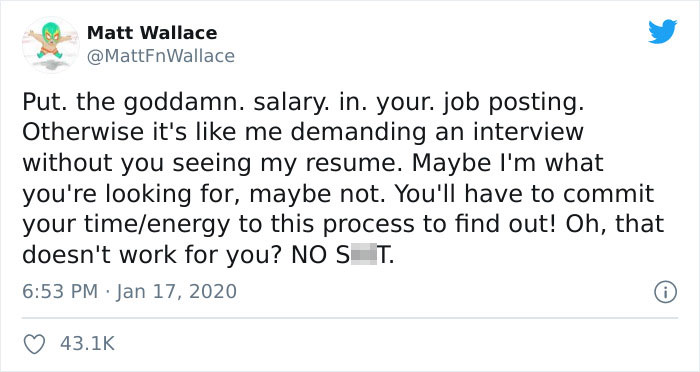
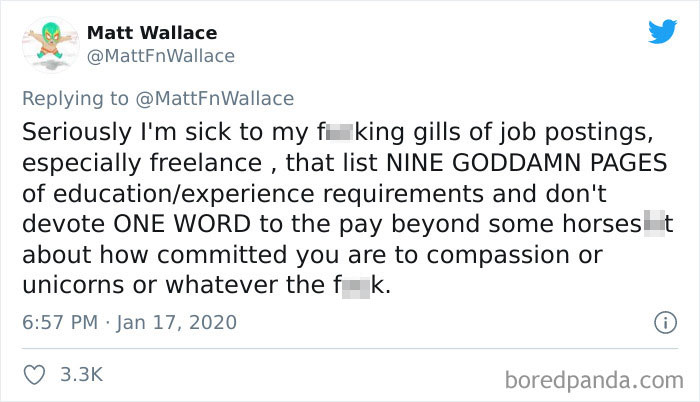

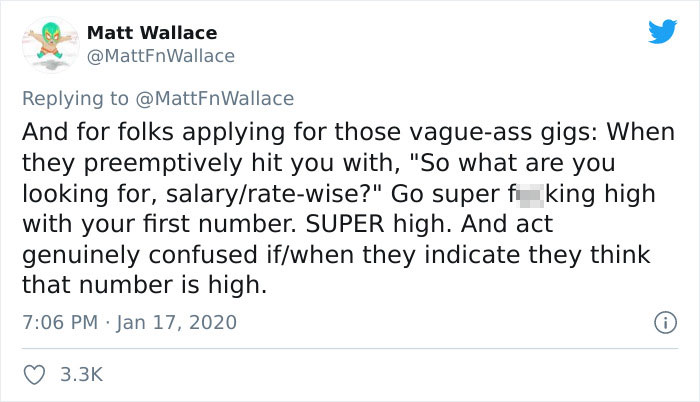
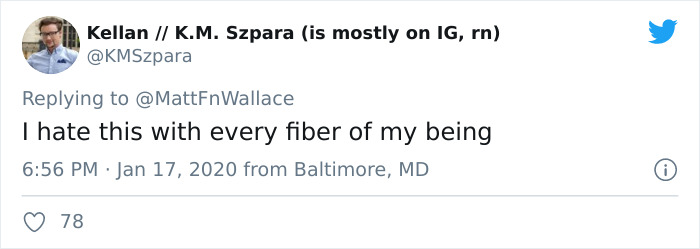
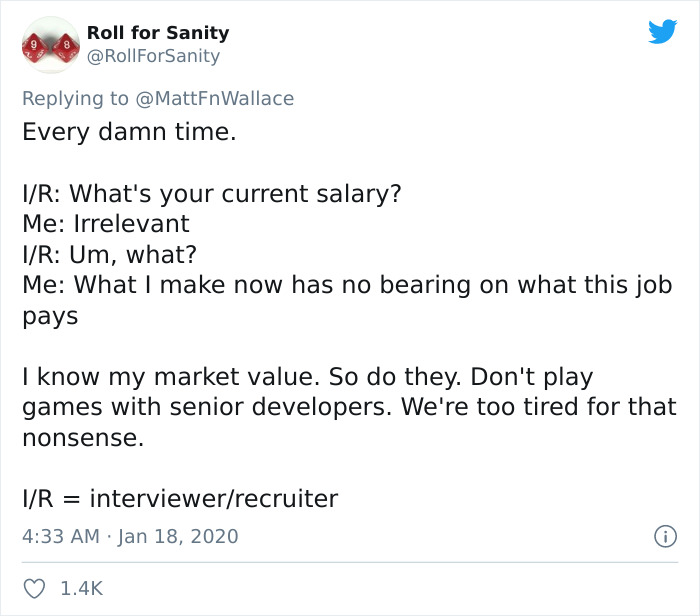
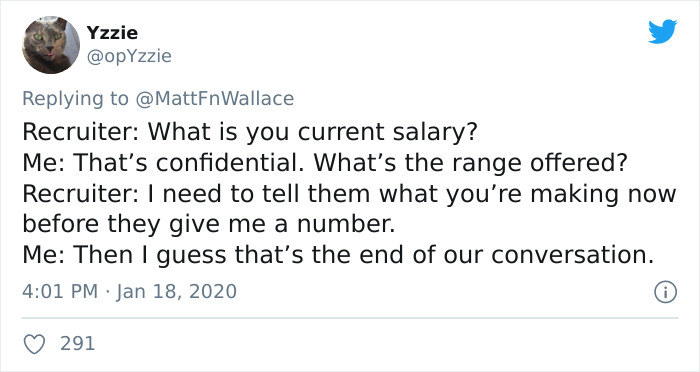
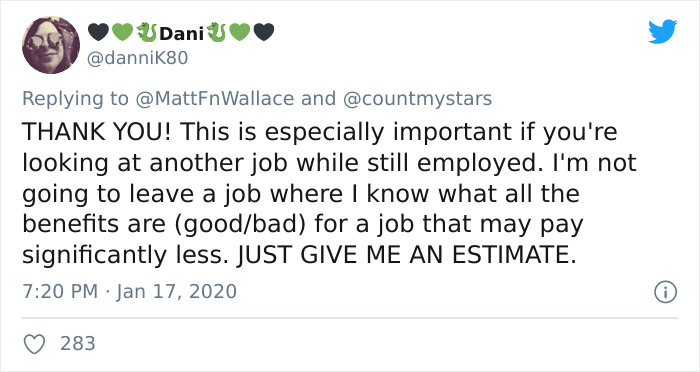
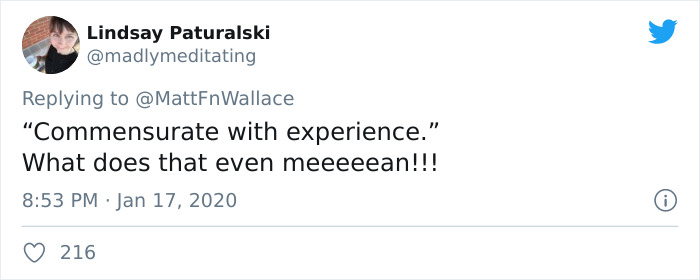
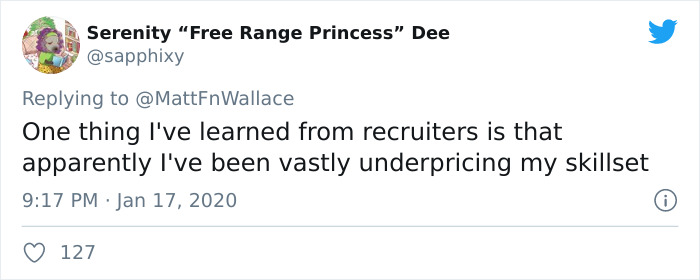
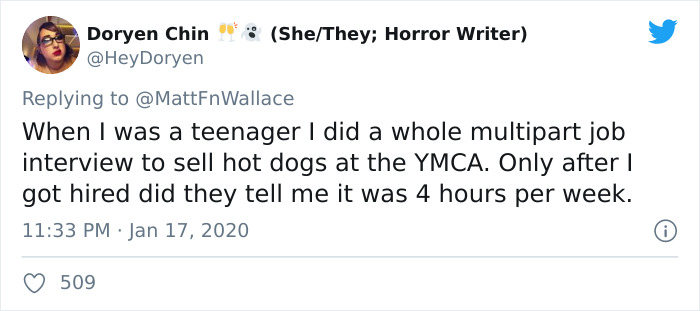
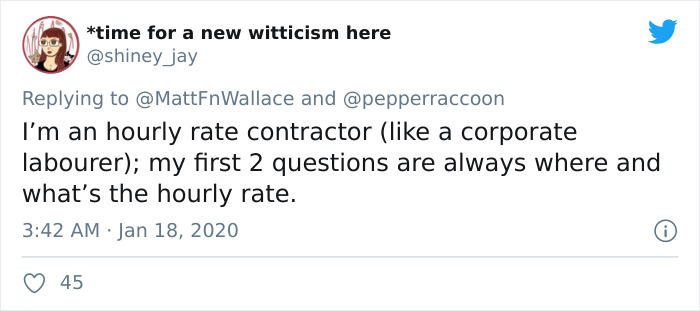
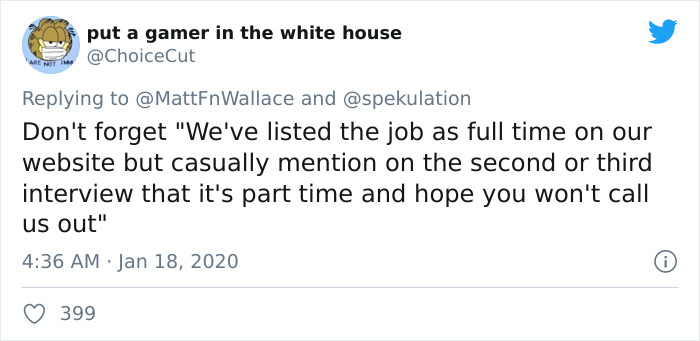
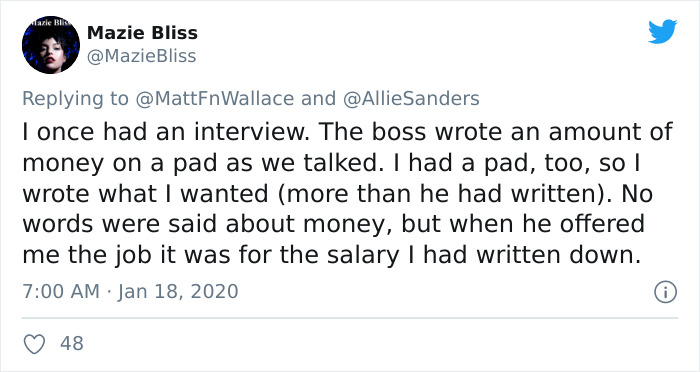
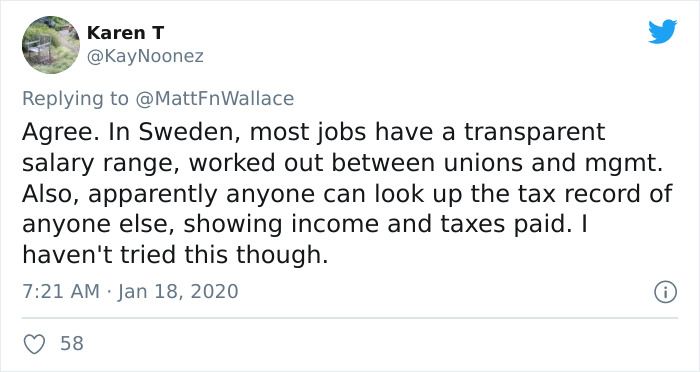
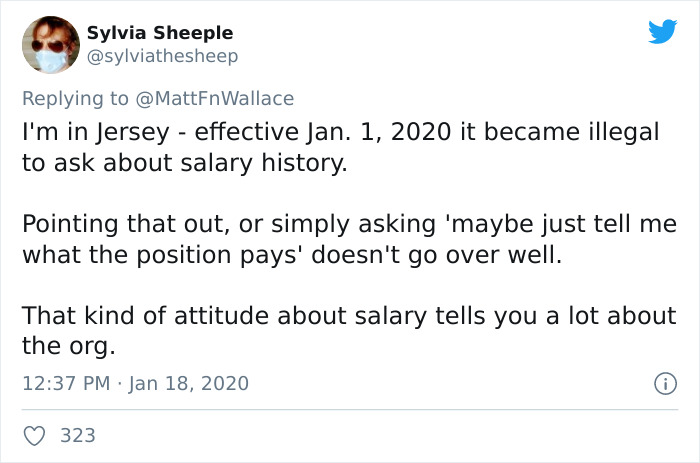

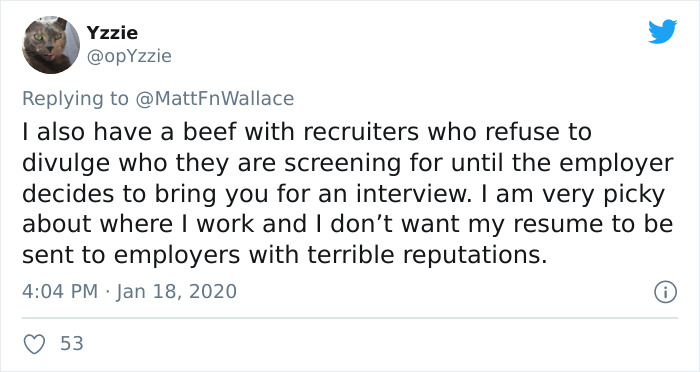
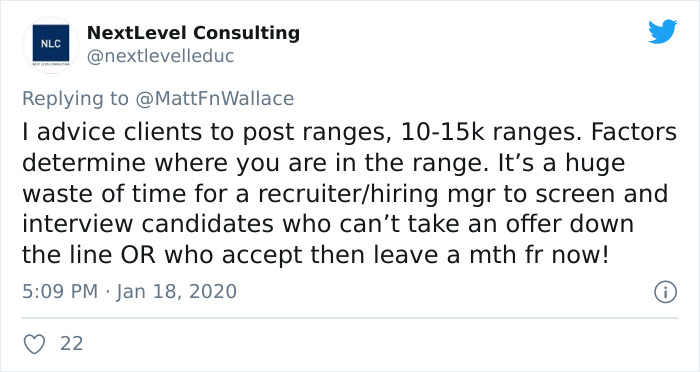
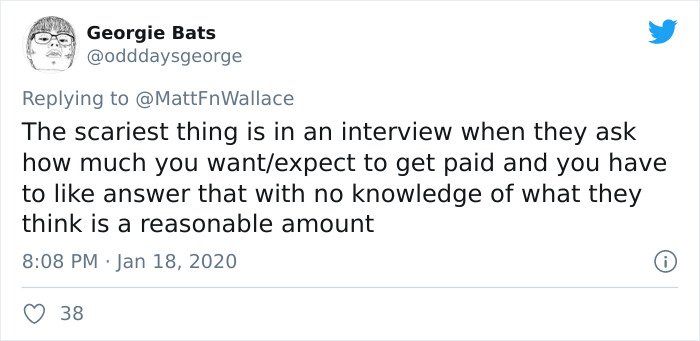
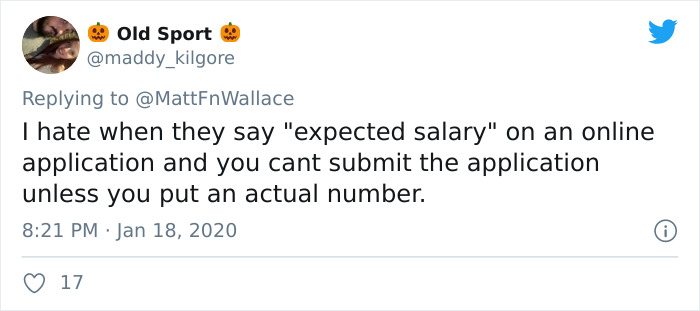












































227
52